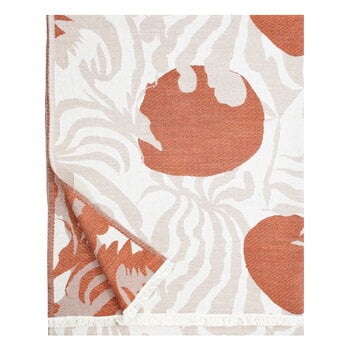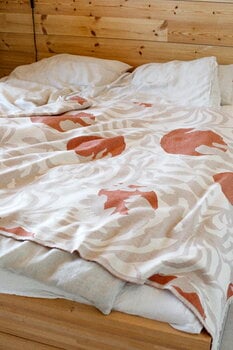The Kuutamo blanket by Lapuan Kankurit is made of merino wool and cotton blend that feels luxurious and soft against the skin. Designed by Saara Odele, the pattern in the blanket is inspired by tropical nights in late summer when the forest filters the moon's warm light – "kuutamo" means moonlight in Finnish. The sweet blanket is perfect to warm up chilly autumn evenings but also works well as a picnic blanket on warm summer days.
The materials and accessories for the Kuutamo blanket are all from Europe, mainly from Finland. The blanket is sewn in a sewing factory in Lithuania or in Finland at the own weaving mill of Lapuan Kankurit.















